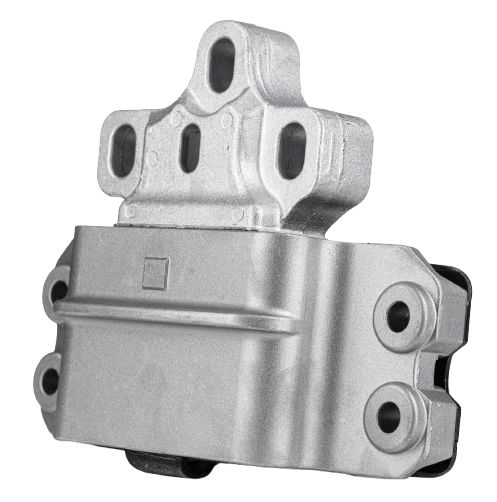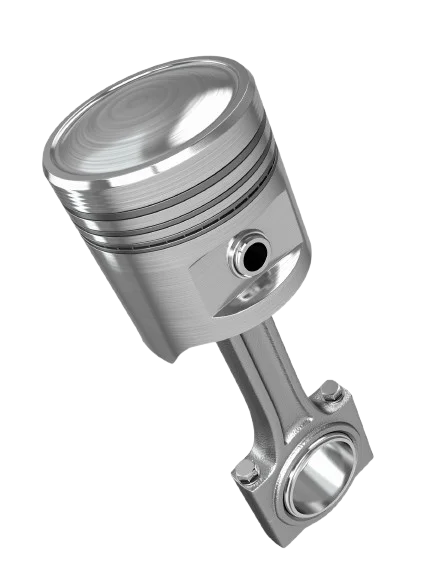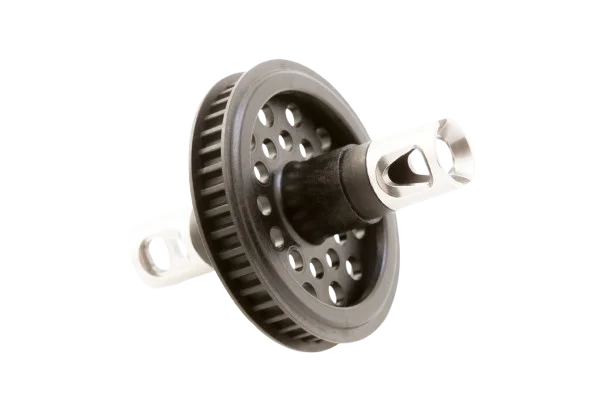Forging
Zeometrix delivers precision-engineered forged components through advanced tooling and cutting-edge simulation technologies. Get Components with CNC Machining with Advanced Surface Finishing.
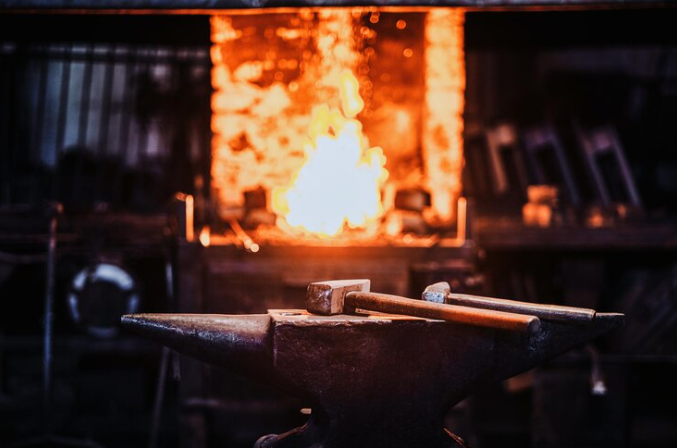
Trusted by more than 10,000 engineers and procurement leaders
What Is Forging
At Zeometrix, we transform raw metals into exceptional engineered components through advanced forging technologies. Our manufacturing process applies intense, localized pressure to hammer, press, and roll metals, creating high-strength forgings that exceed traditional manufacturing standards. These precision-engineered parts deliver superior strength, reliability, and safety for critical industrial applications. Our specialized expertise focuses on producing advanced metal components, particularly high-performance rings for demanding sectors like wind turbine manufacturing. By leveraging cutting-edge forging techniques, we craft components that meet the most rigorous engineering specifications. Each forged part undergoes meticulous post-processing, including precision CNC machining and advanced surface finishing, ensuring unparalleled quality and performance.Lorem ipsum dolor sit amet, consectetur adipiscing elit, sed do eiusmod tempor incididunt ut labore et dolore magna aliqua. Ut enim ad minim veniam, quis nostrud exercitation ullamco laboris nisi ut aliquip ex ea commodo consequat. Duis aute irure dolor in reprehenderit in voluptate velit esse cillum dolore eu fugiat nulla pariatur. Excepteur sint occaecat cupidatat non proident, sunt in culpa qui officia deserunt mollit anim id est laborum
ZEOMETRIX’S FORGING CAPABILITY
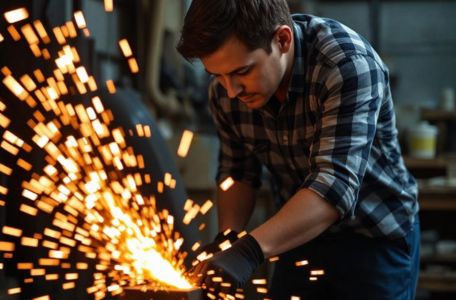
Hot Forging Vs Cold Forging
Forging can be performed at high temperatures, reaching up to 1,250°C, or at room temperature as cold forging. Cold forging methods include bending, drawing, heading, coining, and extruding, allowing for the production of various shapes. This process typically requires more robust equipment and may involve additional annealing to achieve desired results. Despite these challenges, cold forging offers significant advantages, such as better dimensional accuracy, improved product consistency, enhanced surface quality, and reduced risk of contamination compared to hot forging. However, it is less effective for extremely strong metals, like high-carbon steel. Cold forging is most economical for components weighing 5 kg or less, with automated processes feasible for symmetrical pieces up to 3 kg. Common materials include low-alloy and carbon steels, along with aluminum, brass, and bronze alloys.
Rolled ring Forging.
Rolled ring forging involves shaping a thick, circular metal piece by punching a hole in the center to form a donut-like structure. This initial shape is then rolled or compressed to create a thinner, cylindrical ring. The resulting ring can range in diameter from under one meter to over 10 meters.

Material suitability
| TYPES | MATERIAL |
|---|---|
| Open-die forging | Carbon steel, Alloy steel, Stainless steel, Aluminum alloys, Inconel, Titanium, Copper, Nickel and Bronze |
| Open-Die Forging | Forging technique for large metal parts, allowing flexibility in shape and size for heavy industries. |
| Cold forging | Carbon steel, Stainless steel, Alloy steel, Aluminum, Copper, Titanium, Low carbon steel and Brass. |
| Hot forging | Alloy steel, Stainless steel, Copper, Carbon steel, Microalloy steel, Titanium, Nickel, Brass, and Aluminum alloys |
| Roll forging | Alloy steels (Popular options include 4130, 4140, and 4340), Stainless steel, Aluminum alloys, Titanium alloys and Nickel alloys. |
12 SEO-Boosting FAQs for Forging Services
-
What is Steel Forging and How Does It Work?
Steel forging is an advanced metal forming process where steel is heated and shaped under extreme pressure, creating components with superior strength and structural integrity. At Zeometrix, we transform raw steel into complex geometries using state-of-the-art forging techniques. Our process involves heating steel to optimal temperatures, then applying controlled pressure through specialized dies to reshape the metal. This method produces parts with exceptional mechanical properties, enhanced grain structure, and improved durability compared to traditional manufacturing methods. Our expertise spans various industries, ensuring precise, high-performance forged components that meet rigorous engineering standards.
-
What Types of Materials Can Be Forged?
Zeometrix specializes in forging multiple materials to meet diverse industrial requirements. Our primary materials include carbon steels, alloy steels, stainless steels, aluminum alloys, titanium, and nickel-based superalloys. Each material offers unique properties suitable for specific applications. Carbon steels provide excellent strength and affordability, while stainless steels offer corrosion resistance. Aluminum alloys deliver lightweight solutions, and titanium ensures exceptional strength-to-weight ratios. We carefully select materials based on client specifications, ensuring optimal performance in aerospace, automotive, energy, and manufacturing sectors. Our advanced metallurgical expertise allows us to recommend the most suitable material for each unique forging project.
-
What Industries Do You Serve with Forging Services?
Zeometrix provides precision forging solutions across multiple critical industries. Our expertise spans aerospace, automotive, energy, defense, marine, and heavy machinery sectors. In aerospace, we produce complex turbine components and structural parts requiring exceptional reliability. Automotive clients benefit from our high-strength drivetrain and suspension components. Energy sector projects include critical components for power generation and renewable energy systems. Defense applications demand our most precise and durable forgings. Marine and heavy machinery industries rely on our ability to create robust, corrosion-resistant parts. Our versatility ensures we can meet the most demanding engineering specifications across diverse industrial landscapes.
-
How Do You Ensure Quality in Forging Processes?
Quality assurance is paramount at Zeometrix. We implement comprehensive quality control measures throughout our forging processes. Our approach includes advanced non-destructive testing techniques like ultrasonic, magnetic particle, and radiographic inspections. We maintain strict metallurgical controls, monitoring chemical compositions and mechanical properties of every forged component. Our ISO-certified facilities utilize cutting-edge equipment and follow rigorous international standards. Each production batch undergoes multiple verification stages, ensuring dimensional accuracy, structural integrity, and performance consistency. Our quality management system tracks every component from raw material selection through final inspection, guaranteeing that each forged part meets or exceeds client specifications.
-
What Are the Advantages of Choosing Forged Components?
Forged components offer superior mechanical properties compared to cast or machined parts. The forging process creates a refined grain structure, enhancing strength, durability, and fatigue resistance. At Zeometrix, our forged parts demonstrate improved structural integrity, higher impact strength, and better performance under extreme conditions. The directional grain flow during forging eliminates internal porosity, reducing potential failure points. Forged components typically require less post-processing, reducing manufacturing costs and lead times. Our precision forging techniques allow complex geometries with tighter tolerances, making them ideal for critical applications in aerospace, automotive, and industrial sectors.
-
Can You Handle Large-Scale and Custom Forging Projects?
Zeometrix specializes in both large-scale and highly customized forging projects. Our advanced manufacturing capabilities accommodate components ranging from small, intricate parts weighing just 0.2 kg to massive forgings up to 50 kg. We utilize forging equipment with capacities between 300-2500 tons, enabling us to meet diverse project requirements. Our engineering team collaborates closely with clients, transforming detailed drawings and specifications into precise forged components. We offer end-to-end solutions, including design consultation, material selection, forging, and post-processing machining. Our flexibility and technological capabilities ensure we can tackle complex, high-precision projects across various industries.
-
What Forging Techniques Do You Utilize?
Zeometrix employs multiple advanced forging techniques to meet diverse manufacturing needs. Our primary methods include closed die forging for precision small parts, open die forging for larger components, and seamless rolled ring forging for circular parts. We utilize hot and cold forging processes, selecting the most appropriate technique based on material properties and component requirements. Hot forging allows complex shape creation at elevated temperatures, while cold forging provides exceptional dimensional accuracy and surface finish. Our multi-stage forging approaches enable us to create intricate geometries with superior mechanical properties and minimal material waste.
-
How Long Does a Typical Forging Project Take?
Project timelines at Zeometrix vary depending on complexity and scale. Typically, sample and prototype development takes 30-40 working days, including die preparation and initial component creation. Mass production follows sample approval, requiring an additional 35-45 working days. Factors influencing timeline include component complexity, material specifications, quantity, and post-processing requirements. We prioritize efficient project management, providing transparent communication and realistic scheduling. Our streamlined processes and advanced manufacturing capabilities enable competitive turnaround times without compromising quality. Clients receive regular updates, ensuring alignment with project milestones and expectations.
-
What Testing Methods Do You Use for Forged Components?
Zeometrix employs comprehensive testing methodologies to validate forged component quality. Our non-destructive testing techniques include ultrasonic testing, magnetic particle inspection, and fluorescent penetrant testing. We conduct mechanical property assessments measuring tensile strength, yield strength, and elongation. Chemical composition verification ensures material compliance using spectrographic analysis. Our testing protocols follow international standards like ASTM and ISO, guaranteeing rigorous quality control. We provide detailed inspection reports and certificates for each production batch. Our advanced testing capabilities detect potential defects, ensuring only high-performance components reach our clients.
-
Do You Offer Post-Forging Machining Services?
Zeometrix provides comprehensive post-forging machining services to deliver fully finished components. Our integrated manufacturing approach includes precision machining, heat treatment, surface finishing, and final inspection. We utilize advanced CNC machining equipment to achieve tight tolerances and complex geometries. Our machining capabilities complement our forging expertise, enabling us to deliver ready-to-install components across various industries. From initial design to final product, we offer end-to-end manufacturing solutions. Our skilled machinists ensure each component meets exact client specifications, reducing downstream processing and improving overall product performance.
-
What Are Your Pricing and Payment Terms?
Zeometrix offers transparent and flexible pricing structures for forging projects. Our standard payment terms include 100% prepayment for tooling costs, 30% production payment after sample approval, and the remaining 70% before delivery. Pricing depends on component complexity, material specifications, quantity, and post-processing requirements. We provide detailed quotations following comprehensive project assessments, ensuring competitive and fair pricing. Our approach prioritizes value creation, balancing cost-effectiveness with exceptional quality. Clients receive transparent cost breakdowns, helping them make informed decisions. We welcome project discussions to develop tailored solutions meeting budgetary and technical requirements.
-
How Do You Support Sustainable Manufacturing Practices?
Sustainability is integral to Zeometrix's manufacturing philosophy. We minimize material waste through precision forging techniques, reducing environmental impact. Our advanced processes optimize material utilization, generating less scrap compared to traditional manufacturing methods. We implement energy-efficient technologies and continuously improve our manufacturing processes to reduce carbon footprint. Material recycling and responsible sourcing are key components of our sustainability strategy. We prioritize using recyclable materials and implementing circular economy principles. Our commitment extends beyond manufacturing, focusing on long-term environmental responsibility and supporting clients' sustainability goals through innovative, eco-conscious forging solutions.
Examples of Our Sheet Metal Fabrication Work
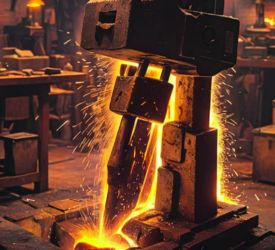
The Benefits of Custom Metal Forging in Modern Manufacturing
Orjo Bora
14-01-2025
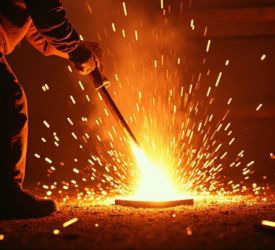
Casting vs. Forging: Why Forged Components Outperform Traditional
Orjo Bora
14-01-2025
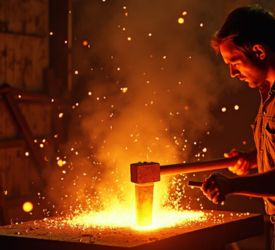
Forging for Automotive Industry: Engineering High-Performance Vehicle Components
Orjo Bora
14-01-2025
